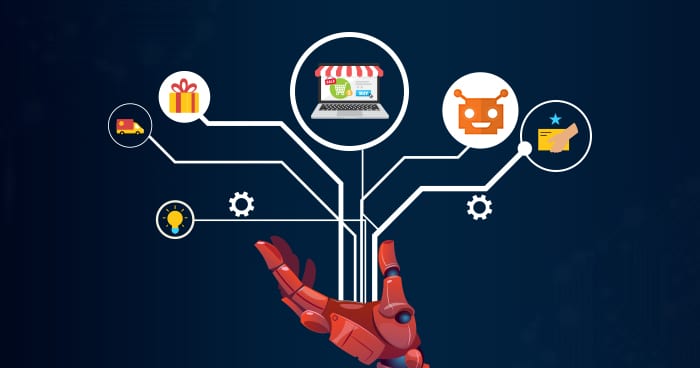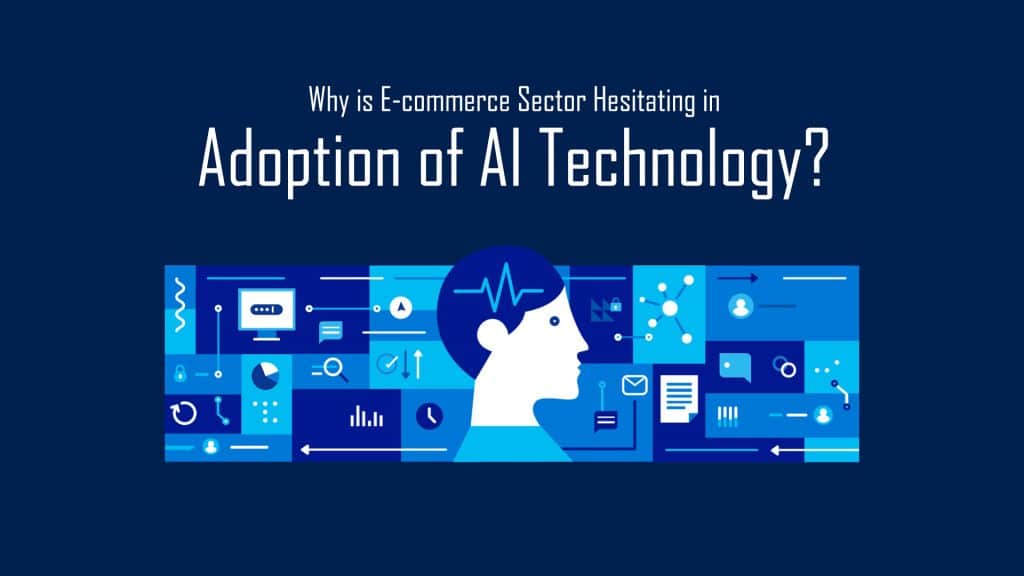Although the enormous investments being induced in AI technology, it still has to gain massive commercial support. Mobile app development is one of the most complementing industries with the AI revolution. It is astonishing that many app development businesses are not willing to look ahead to the prospective challenges the technology faces right now.

The recent debate concerning the gap between AI and its adoption in businesses is quite a unique one. As there are various proofs conveying AI technology has a promising future and the advantages of competence, output, automation, personalization, among other chief business apprehensions, there is still a prevalent confusion reducing the spread of the application of data-driven business models.
Jump to Section
Concerns Keeping AI From Progressing Past Experimentation to Mobile App Development
A lot of organizations are still reluctant to indulge in present AI mobile strategies because a persuasive business model is in the way. Recent research stated the major hurdles in the way AI adoption. The main reason that came into the spotlight was that almost 20% of respondents still have reservations about the value proposition of AI.
The organizations which have been matured as far as digital adoption is concerned are probable to hire employees who are skilled to comprehend a business model for AI investment. The basic factor why the majority of organizations stay behind in this digital trend as they do not have enough knowledge and understanding about AI to use it to its complete potential. They also lack the vision of the ROI they are missing out on.
Why Businesses Hesitate to Integrate AI?
Lately, there has been remarkable buzz surrounding AI and machine learning and their power to replicate human behavior. Most of this rush circles around losing jobs to machines as opposed to the possibility of losing intellectual superiority. However, despite these concerns, many businesses and mobile app development companies are adopting AI.
One certain reason for this is because professionals want to advance themselves as cutting-edge thought leaders. But, there are realities in the corporate world that serve as a practical discouragement to AI adoption.
1. Financial Motivations
Mobile apps, software, and machines, with maximize processing speed and no human error, reduce operational costs while improving output. That means more money for those who are motivated by it: for instance, shareholders who do not make executive decisions and a few senior-level employees who receive a profit share.
Businesses are also intimated by societal and community objectives — objectives that human employees can better satisfy. Also, the damage of replacing a large workforce would be huge, which outweighs quick adoption despite its increased efficiency.
2. Lack of Understanding About AI
AI is an extensive framework that becomes densely hazy when the apps interlink various technologies to cater to a certain problem. Machine intelligence is dynamic and innovates as the general public gets comfortable with each stage of progression. For the same reason, many businesses cannot completely understand how to accept an exclusive AI model.
The same research also disclosed the lack of understanding about AI applications. The same survey informed that only 38% of respondents are presently using AI in their association. Though, 88% of the same respondent pool who said they don’t use AI ended up contradicting themselves by saying they use resolutions that depend on AI applications.
Numerous businesses are using AI without even realizing it. Many case studies have shown that AI can bring substantial value to serious adopters and cause a significant commotion in the mobile space.
3. Lack of Control
Muscles execute and nerves feel, but the brain controls both in the human body. This relation describes a lot about corporate reliance on machines. Execution tasks (the muscles) were the first to be automated, such as using robots to automate operations. Following this was the automation of feedback and internal marketing systems (the nerves), where real-time feedback and sentiment analysis have gained prominence.
The most important one — the one that will take automation to autonomy – is decision making (the brain). But no professional wants to rescind control here. Autonomy means machines will take away the sense of power associated with decision making, so corporate professionals may hesitate to automate to this extent.
4. Known Risk vs New Risk
On paper, risk and return have always been correlated. In reality, though, senior executives hesitate to take unknown business risks, a fallacy because risks are all about uncertainty. A new investment that is not thoroughly understood often receives low acceptance from the C-suite.
While technology leaders may be more willing to take a leap of faith on AI solutions, these decisions occur in both the vertical agnostic and domain agnostic. As a result, executives working in non-technology domains and verticals who view autonomy as a great risk have the power to shut it down in their business.
Why Add AI to Your Mobile App Development?
Smearing the AI technology to your mobile app development enhances the user experience at a whole new level especially regarding the interface. Users abandon 70% of the regular apps within 7 days of downloading because they do not offer anything new, are of outdated looks and interface.

Consumer expectations currently exceed the average performance of the app as the new technologies hit the market every other day. Particularly in terms of bugs, loading speed, and overall user experience, user expectation is extremely enhanced.
The majority of mobile app users rely as much on their phones as they do on their desktops while searching for information, ideas, and advice. The top influencer of app user adoption is to deliver a solution that is unquestionably useful and relevant to the user.
Closing Thoughts
Despite all the hurdles, AI adoption is inevitable. AI apps are the precious sources, which acquire the potential to fully redefine innovation in the mobile app development services and industry. It is predicted that over the upcoming years each and every app will require inculcating AI to some extent.
It is now time that the enterprises should be seriously focused on understanding the ways to test, apply and derive benefits from their AI- induced mobile apps.
- LinkedIn Scraper | LinkedIn Data Extractor Software Tool - February 22, 2021
- Is Web Scraping Legal? - February 15, 2021
- What Is Data Scraping? - February 10, 2021


